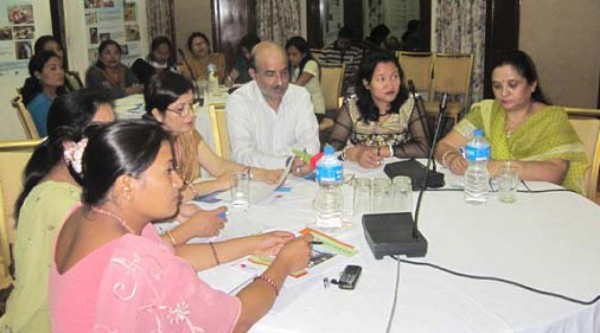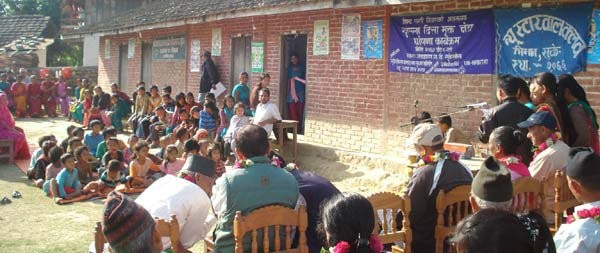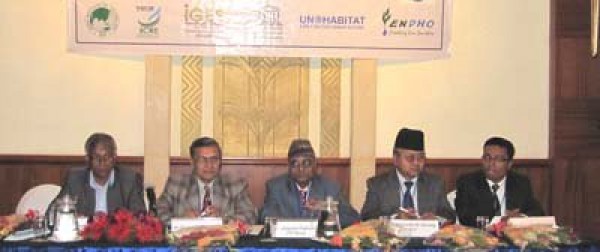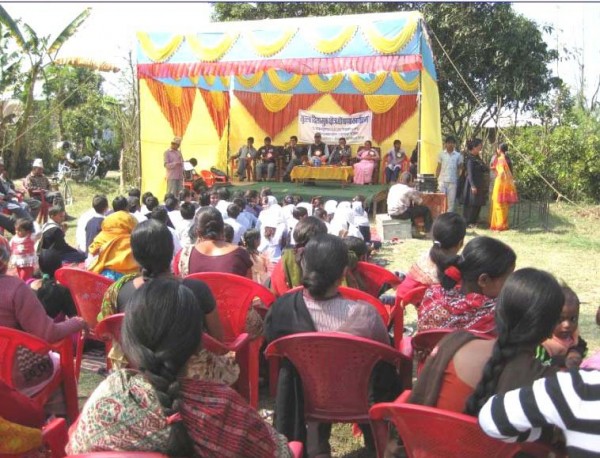Follow up workshop on gender mainstreaming in WATSAN held

UN-HABITAT Water for Asian Cities (WAC) Programme Nepal in association with Gender Water Alliance (GWA) organized a Follow Up Workshop on Gender Mainstreaming in Water and Sanitation (WATSAN) from 22 – 24 September, 2010 in Lalitpur, Nepal. The workshop had been held to enhance the understanding of WATSAN stakeholders on gender, share the experiences of the participants on gender mainstreaming and increase equal gender participation in the sector. It also aims to consult on their Gender Mainstreaming Action Plans and make necessary improvements for its effective implementation in WATSAN sector. There were around 30 participants at the workshop particularly from different government agencies, municipalities and non-governmental organizations. Speaking at the programme, Sudha Shrestha, Acting Chief Technical Advisor, UN Habitat WAC Programme Nepal informed that the follow up workshop will also be organized in Laos, Vietnam, Indonesia and Cambodia immediately after Nepal. According to her, the participants of these workshops will share their experiences on gender mainstreaming, which will be used as reference to develop a “Resource Book for Gender Mainstreaming in WATSAN Sector in Asia”.Ester de Jong, Deputy Director of GWA told that the workshop had been expected to enhance the organizational capacities in addition to increasing knowledge of the WATSAN stakeholders on gender mainstreaming. Senganphone Chithtalath, Gender Program Officer,Mekong River Commission shared about the successstories of the gender mainstreaming in water resource development and other WATSAN activities along Mekong Basin. During the workshop, the participants were introduced to gender mainstreaming and suggested to use different indicators to measure gender mainstreaming at different levels including policy, technology, organizational and programme level. They were also guided on gender budgeting, and different principles of effective gender and water governance. Apart from it, the workshop reviewed the lessons and experiences of the operational aspects of the action plans of each participating organizations. Based on the consultation among the participants, these plans were improved to make it more effective at organizational level. These action plans had been developed in the previous gender mainstreaming workshop held last year in Nepal to institutionalize gender mainstreaming in WATSAN sector.









